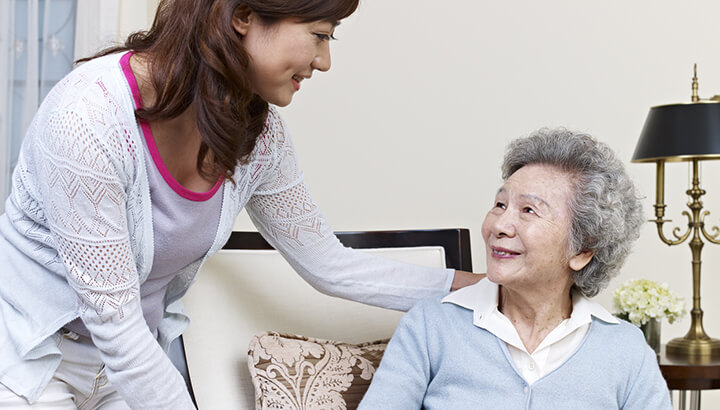
What’s the secret to a long, healthy life? Everyone wants to know, and there is no simple answer. Of course, health and longevity have a lot to do with how well you take care of yourself. Eating healthy, staying active and doing things that make you happy are all crucial.
However, that’s not the whole picture. New interesting research has found that longevity may also have quite a bit to do with caring for others.
Can caring for others increase longevity?
A recent study published in the journal Evolution and Human Behavior found that older adults who cared for others lived longer, on average, than older adults who did not provide care for others. To arrive at their results, researchers analyzed 500 people between the ages of 70 and 103. Data for these individuals was gathered between 1990 and 2009 and derived from the Berlin Aging study.
On the specifics of their results, the study authors wrote:
“Survival analyses based on data from the Berlin Aging Study revealed that mortality hazards for grandparents who provided non-custodial childcare were 37 percent lower than for grandparents who did not provide childcare and for non-grandparents. These associations held after controlling for physical health, age, socioeconomic status and various characteristics of the children and grandchildren. Furthermore, the effect of caregiving extended to non-grandparents and to childless older adults who helped beyond their families.”
In this study, grandparents who took occasional care of their grandchildren fared the best as far as longevity. However, people who did not have grandchildren but still helped others in their social circle were found to live longer than people who did not help others at all. This is a significant finding, and really underscores the value of compassion as necessary to health and life. The willingness to provide care to another is one of our greatest traits as humans. And the fact that it may help us live longer speaks volumes about its importance.
Caring for others gives people a sense of purpose

Aside from the health benefits of compassion on its own, one reason why older people who cared for others were found to live longer may have to do with a sense of purpose. A 2014 study published in the journal Psychological Science found that people who had a sense of purpose in life lived longer than those who did not. This study assessed 6,000 people over a 14-year follow-up period. Sense of purpose was determined through self-reported variables regarding psychology, emotional state and relationships with others.
On the results of this study, the authors wrote:
“Purposeful individuals lived longer than their counterparts did during the 14 years after the baseline assessment, even when controlling for other markers of psychological and affective well-being. Moreover, these longevity benefits did not appear to be conditional on the participants’ age, how long they lived during the follow-up period, or whether they had retired from the workforce. In other words, having a purpose in life appears to widely buffer against mortality risk across the adult years.”
For many people, caring for others may serve as a driving life purpose. Taking these two studies into consideration together makes a lot of sense: if one’s purpose is to care, then longevity may be enhanced significantly.
Caring for others means caring for yourself, first

There is one caveat: in order to properly care for others, one has to care for themselves first. Ralph Hertwig, the Director of the Center of Adaptive Rationality at the Max Planck Institute for Human Development, states:
“A moderate level of caregiving involvement does seem to have positive effects on health. But previous studies have shown that more intense involvement causes stress, which has negative effects on physical and mental health.”
In short, it’s wonderful to help others as much as you can, without stressing your reserves or stretching yourself too thin. You have to manage your own stress levels as well. Keeping yourself healthy and happy can help you help others stay healthy and happy, as well. It’s a positive cycle, so make sure the positivity begins with you.
– Tanya Mead

